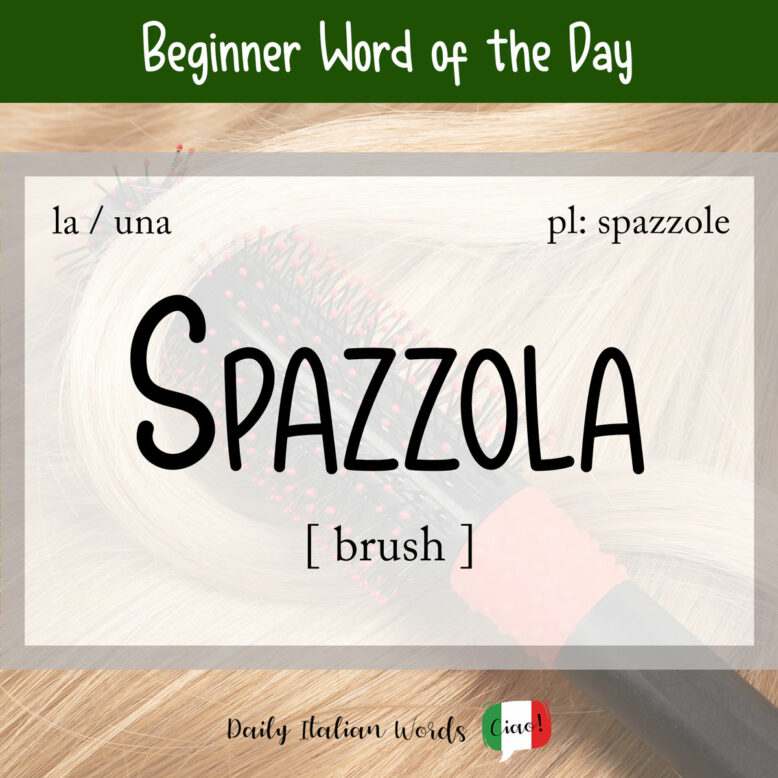The word for brush in Italian is spazzola (feminine, plural: spazzole). It comes from the verb spazzare meaning to sweep or to mop.

The diminutive spazzolina literally means little brush whereas the masculine equivalent spazzolino is what Italians call a toothbrush. The augmentative spazzolone on the other hand specifically denotes a scrubbing brush / broom.
Some other types of brushes include:
- spazzola per capelli = hairbrush
- spazzola per vestiti / abiti = clothes brush
- spazzola per scarpe = shoe brush
- spazzola / spazzolino per unghie = nail brush
- spazzola per (lavare) i piatti = washing up brush
È difficile trovare una spazzola che sia perfetta per i miei capelli.
It is difficult to find a brush that is perfect for my hair.

By extension, the word spazzola may also refer to the wiper blade of a car or a percussion brush used in music.
Note: There is a separate term for the kinds of brushes used for painting (art and decoration) and make-up which is pennello.
Two related verbs are spazzolare (to brush) and the reflexive spazzolarsi (to brush oneself). These verbs can be used when talking about dental hygiene, but Italians prefer to say that they “wash” their teeth (si lavano i denti) instead.
Did you know that…?
Another meaning for spazzolare / spazzolarsi is to devour or scarf something down. It is from this meaning that we get the expression Che spazzola! (What an appetite!)
Dare una spazzolata (lit: to give a brushing) or pulire con una spazzola (to clean with a brush) are two alternative ways of saying spazzolare. If all you do is give something a quick brush, you can use the expression dare un colpo di spazzola (lit: to give something a hit of brush).
Ho dato una spazzolata veloce alle mie scarpe.
I gave my shoes a quick brush.
A closely-cropped haircut in which the hairs stick upward like the bristles of a brush is called un taglio a spazzola (crew cut or brush cut). This expression may also be used in reference to animals such as horses.

Heather Broster is a graduate with honours in linguistics from the University of Western Ontario. She is an aspiring polyglot, proficient in English and Italian, as well as Japanese, Welsh, and French to varying degrees of fluency. Originally from Toronto, Heather has resided in various countries, notably Italy for a period of six years. Her primary focus lies in the fields of language acquisition, education, and bilingual instruction.


